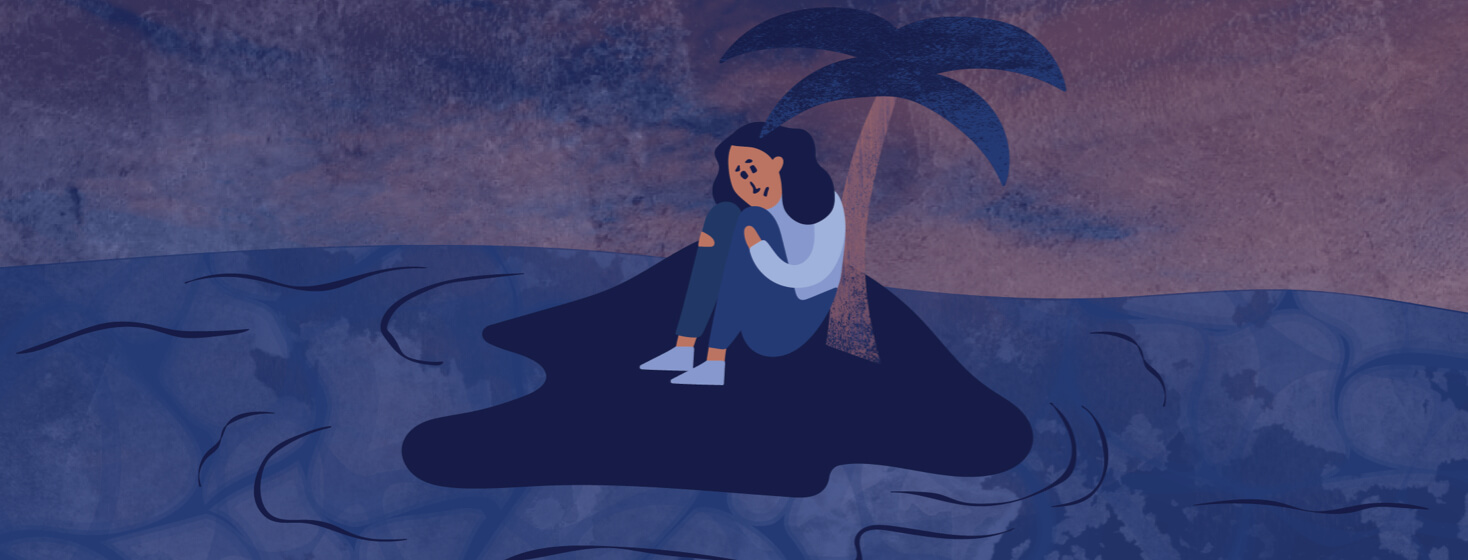Why Is Narcolepsy So Isolating?
It is estimated that between 135,000 and 200,000 people in the U.S. suffer from narcolepsy. Narcolepsy is a relatively rare sleep disorder in which people suffer from excessive sleepiness, fragmented sleep, hallucinations, temporary bouts of paralysis brought on by emotions, and more.1
Narcolepsy can be isolating for a number of reasons
Without community support of some kind, this disease is even more difficult to manage. Unfortunately, I’ve found that my narcolepsy symptoms have seeded the termination of all kinds of relationships.
Here are just a few reasons why living with narcolepsy can be so isolating:
1. Narcolepsy symptoms are invisible
When I have a sleep attack, it is not always apparent on the outside. If I am interrupted from a sleep attack, people may think that I am sluggish when in reality I am fighting my own neurobiology to feign wakefulness. My medication allows me to fight through sleep attacks better now – thank goodness – but I have to allow myself time to rest throughout the day. I nap most everywhere I go now.
From the outside it might seem like I am lazy. People often make assumptions about me based on how much I sleep. The fact that people with narcolepsy have to fight to stay awake every hour of every day just goes to show how incredibly strong-willed we are. There is strength in choosing rest, too. That’s something that I think able-bodied people don’t always understand.
2. Narcolepsy often requires a rigid sleep schedule
I arise with the sun and sleep with it, too. That’s my sleep schedule right now. Add in a couple of daytime naps, and that leaves me with a few available hours in the day for activities. Except... all it takes is missing a nap or a particularly rigorous trip to the grocery store to knock me out for a day or two. The last girl I dated was annoyed by these limitations of mine. Other times my schedule alone serves as an effective romantic barrier.
3. Nightlife is difficult for people with narcolepsy
Before narcolepsy, I was better at a lot of things, including partying. I yearn for the days when I could stay up until 4 AM with drunken strangers, eating Burger King tacos in between dancing spurts. Now I can barely stay up past 10 PM. Even alcohol, an old college friend of mine, makes me too tired to have any fun. And the effects can last for days. Thus, my partying days are long over.
4. Sex and dating are complicated by narcolepsy symptoms
Dating with narcolepsy is frustratingly complicated. When meeting with someone, I have to consider so many factors with narcolepsy. For example, the location – will I be able to nap there? If not, I’ll need to eat nothing (or very little) so I don’t become too tired for the drive home. Will we be having sexual relations? Then I should probably warn them about my cataplexy (which likes to make an appearance during passionate experiences. Will they think I’m crazy? When I say “narcolepsy” and they see “uncontrollable full-body paralysis” it can be confusing.
Have your narcolepsy symptoms made you feel isolated from others? Have your relationships changed as a result of managing your symptoms or starting treatments? Share with us in the comments below.

Join the conversation